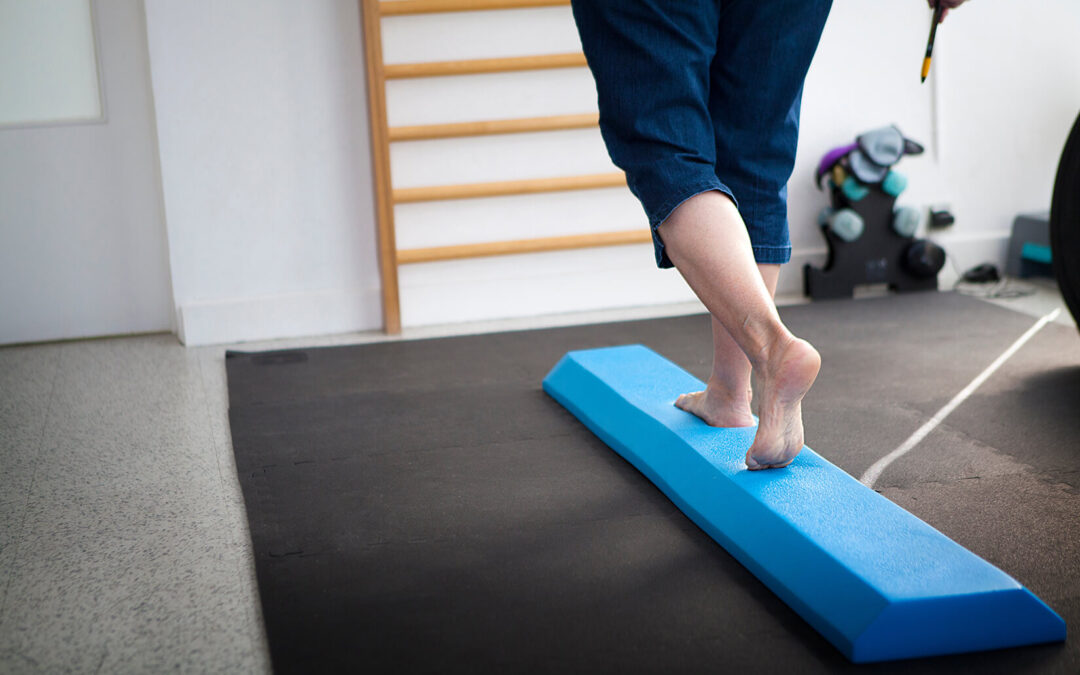Arthritis is a chronic joint inflammation condition that affects an estimated 54.4 million people, or 1 in 4 adults, in the United States. Pain brought on by arthritis can be debilitating, impacting quality of life and limiting one’s ability to perform daily activities. While there is no cure for arthritis, pain and inflammation can be managed and treated with effective strategies, such as physical therapy.
Physical therapy, also known as “PT,” is a specialized form of healthcare that focuses on restoring, maintaining, and promoting optimal physical function and ability. Physical therapy can help you to work through various ailments associated with arthritis, such as helping with pain management, improving joint function, and enhancing strength, flexibility, and mobility. Here, we will explore the benefits of physical therapy in treating arthritis and how patients can manage arthritis symptoms in a holistic and non-invasive manner.
What is Arthritis?
Arthritis is a chronic condition characterized by joint inflammation and pain. It is a broad term that covers a variety of joint conditions, such as osteoarthritis, rheumatoid arthritis, psoriatic arthritis, and gout. These conditions can cause stiffness, swelling, and limited range of motion, making it difficult to carry out everyday activities.
While the exact causes of arthritis can vary, it is usually due to the breakdown of cartilage or protective tissues at the end of bones in joints. This deterioration can cause the body to deploy its immune response, causing inflammation, swelling, pain, and decreased function overall. Arthritis can affect people of all ages and manifests in many different forms. However, it is mostly common in older adults over age 50.
How Physical Therapy Can Help Treat Arthritis
Physical therapists employ various techniques to address the specific needs of people with arthritis. A licensed physical therapist will thoroughly evaluate the patient’s arthritis and medical history, assessing everything from their current range of motion, pain points, and strength to their flexibility and function. After evaluation and consultation, physical therapists can develop and tailor their treatment plans to meet patient’s needs. Common forms of physical therapy that you can expect to see are:
Therapeutic exercise: Physical therapists guide patients through a series of exercises, such as modified calisthenics, flexions, or stretches, to improve strength, flexibility, range of motion, balance, and coordination. This form of exercise is the most common and is often prescribed as a series or circuit.
Aquatic therapy: If you live in an area with an easily accessible pool, your physical therapist may recommend aquatic therapy. As a method of reducing joint stress, aquatic therapy can improve patients’ range of motion and be an enjoyable way to continue treatment.
Manual therapy: Techniques such as massage, joint mobilization, and manipulation can be used on tense muscles and areas of limited circulation to reduce pain and improve joint function.
Modalities: Other therapeutic methods can be combined with traditional techniques to treat and manage pain and inflammation. Heat, cold, electrical stimulation, and ultrasound are some ways physical therapists can supplement your treatment plan and tailor their methods to your needs.
Functional training: Exercises that mimic everyday activities can help individuals perform daily tasks more efficiently and independently. Physical therapists can walk patients through everyday tasks, such as sitting and standing, pushing and pulling objects, and gripping items.
When to Consider Physical Therapy for Arthritis
If you live with arthritis, experience pain or stiffness, or are having trouble carrying out your daily activities, you should consult a healthcare professional. Physical therapy is an excellent option for slowly rehabilitating joints and restoring the functions required to live a whole and healthy life.
When joints in the knees and legs experience pain and weakness from arthritis, balance and mobility can become an issue, increasing the risk of falls. As arthritis from certain bone-weakening conditions, such as osteoporosis, increases the risk of fracture and injury, physical therapy can help to improve balance and coordination to prevent potential falls and increase safety.
Working With a Physical Therapist
When seeking physical therapy for arthritis, you must find a qualified professional who specializes in treating musculoskeletal conditions and can treat your needs with the best possible care. Physical therapists are highly knowledgeable about the body’s physical functions and should be able to adapt their treatments to your needs and abilities.
With personalized treatment, physical therapists assess and measure your progress over time, gathering information on what your body responds to best and how they can improve your treatment. You will be guided every step of the way through basic exercises, stretches, and techniques to restore and improve strength, flexibility, and balance. You can expect your physical therapist to prescribe at-home exercises and a combination of reliving modalities, such as applying ice, heat, or pain relief topicals.
For the best results, it is essential that you work through and actively participate in your treatment. Be sure to listen closely to your physical therapist’s advice and maintain an open line of communication. Doing so not only helps you to prevent further injury but also allows your doctor to recommend adjustments to your treatment to best suit your needs.
Find Relief With Total Physical Therapy
Through multiple avenues of treatment, physical therapists can help you manage many of the symptoms associated with arthritis. By evaluating the severity of your arthritis and developing personalized treatment plans, physical therapists can provide the best form of care to get you back to enjoying your day-to-day life.
As Denver’s full-service physical therapy clinic, Total Physical Therapy offers personalized one-on-one care and proven, evidence-based techniques to provide quick pain relief, heal many issues, and prevent future injury. Our experienced team of physical therapists strives to treat, heal, and educate you to set you on the right path to recovery and pain management. To schedule an appointment, visit our website or call us at (303) 758-5060 to learn how we can help you return to a fulfilling and active life.




